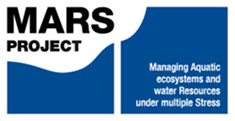What are cultural ecosystem services?
Cultural ecosystem services are the non-material benefits that people obtain from ecosystems through recreation, tourism, intellectual development, spiritual enrichment, reflection and creative and aesthetic experiences.
What cultural ecosystem services do freshwater ecosystems provide?
Freshwater systems provide a range of vital regulating and maintaining ecosystem services through processes that move water, energy, nutrients, organisms and sediment across different landscapes and habitats, linking atmospheric, terrestrial, groundwater and marine systems.Recreation and tourism: Healthy, clean and biodiverse freshwater ecosystems attract a range of different user groups. Walkers and sightseers may use bankside paths, trails and viewpoints, drawn by a landscape’s aesthetic appeal, histories and iconic species, often in national parks or other protected areas.
Intellectual and aesthetic appreciation: Many freshwaters are important sites of early settlement, subsistence and travel, and so are often important sites for archeological studies. Freshwaters provide important outdoor laboratories for students and the wider public to engage with nature, for example, through citizen science schemes and outdoor education centres. Aquatic sediments and deposits can provide important paleo-ecological records of environmental history.The aesthetic, ecological and historical characteristics of freshwaters are often important to the construction of the overall character of a landscape. This 'sense of place' often influences the values, opinions and aspirations that people attach to a landscape, and the ways it is represented to the world, and how it is managed.
Spiritual and symbolic appreciation: Freshwaters are important sacred sites in many religions and spiritual belief systems, and water is central to many religious and spiritual practices.Freshwaters shape the way that people live, work, create and relax. This means that freshwaters are often important influences on cultural diversity, artistic and literary forms and practices, architecture, folk stories, and so can shape local and regional identities. When combined, these factors may help emphasise the preservation of the heritage value of cultural freshwater landscapes.
How do ecosystem services relate to freshwater ecosystem management?
An ecosystem service approach has the potential to strengthen freshwater management which aims to coordinate the conservation, management and sustainable development of water, land and resources across entire river basins.
Such integrated approaches are designed to maximise the social and economic outputs of freshwater ecosystems whilst preserving and restoring their ecological status. By explicitly linking ecological status with human benefits, the ecosystem service approach offers the potential for ecosystem health and functioning to be better valued within environmental policy making and management.
What are the policy and management challenges for valuing cultural ecosystem services?
Cultural services are inherently challenging to quantitatively measure and monitor. Perceptions of the value of cultural ecosystem services may differ amongst individuals and communities, be locally specific, and change through time.
This difficulty in measuring the value of cultural ecosystem services may mean that the least prominent or visible services are overlooked in decision making, particularly when compared to provisioning services.
An emphasis on the aesthetic value of freshwaters may conceal reductions in their ecological health or diversity – shifting baselines that may be invisible to the naked eye – or even be the basis for opposition to changes in landscape aesthetics through conservation and restoration projects.
Anglers may stock non-native fish species at unnaturally high levels to provide sport. Recreation and tourism at popular freshwater sites may lead to problems such as water pollution, bank erosion and littering.
Further reading
Reports and publications:
CICES (2012). Common International Classification of Ecosystem Services - Report to the European Environment Agency prepared by R. Haines-Young & M. Potschin (Download report, 1.8mb)
Faneca Sanchez, M. et al. (2015). Report on the MARS scenarios of future changes in drivers and pressures with respect to Europe’s water resources. Part 4 of MARS Deliverable 2.1: Four manuscripts on the multiple stressor framework. (Download report, 15mb)
Grizzetti B., Lanzanova D., Liquete C. & A. Reynaud (2015). Cookbook for water ecosystem service assessment and valuation, JRC Science and Policy Report, European Union (Download report, 8mb)
Millenium Ecosystem Assessment (2005). Ecosystems and Human Well-being: Current State and Trends, Chapter 7 - Freshwater Ecosystem Services, Volume 1, ed. by R. Hassan, R. Scholes & N. Ash (Download report, 700kb)
Selected Freshwater blogs:
Freshwaterblog (2014). Can an ecosystem service approach strengthen river conservation? (External website)
Freshwaterblog (2015). The MARS ‘cookbook’ for assessing freshwater multiple stresses and ecosystem services (External website)
Freshwaterblog (2016). New factsheets on ecosystem services and the future of European freshwaters (External website)
Freshwaterblog (2016). An ecosystem services a pproach for freshwaters (External website)
Freshwaterblog (2016). New tool links freshwater ecological status and ecosystem services (External website)
Freshwaterblog (2017). Innovative solutions for water management and ecosystem services through the DESSIN Project (External website)



